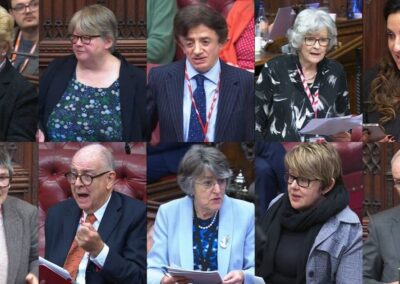Fresh concerns have been raised that, under Kim Leadbeater’s assisted suicide Bill, criminal wrongdoing in relation to assistance in suicide may go unnoticed due to the absence of coroner involvement.
The Terminally Ill Adults (End of Life) Bill, as introduced to the House of Lords, amends the Coroners and Justice Act 2009 to ensure there is no statutory duty to investigate deaths “caused by the self-administration by the deceased of an approved substance”. This means that under Kim Leadbeater’s Bill, the deaths of those who die by assisted suicide would not be automatically referred to a coroner, as is normally required in cases of “unnatural deaths” or those caused by the administration of drugs.
As the assisted suicide Bill heads to the House of Lords, Tom McNeill, a partner at BCL Solicitors, shared his concerns that “without formal scrutiny some deaths could appear unexplained”.
“Without a meaningful investigation, there is no way to determine whether offences have been committed, or the requirements in the act have been met. Unevidenced concerns reported to the coroner or police are unlikely to be investigated. Yet without a meaningful investigation, no evidence will emerge to support those concerns”.
Lack of coroner oversight a “key question” when Bill goes to House of Lords
McNeill said the lack of a coroner’s involvement would be “a key question” when the Bill is scrutinised in the House of Lords.
In the build-up to the Third Reading vote, the Royal College of Pathologists (RCPath) said “that deaths following assisted [suicide] should be notified to the coroner, just as other deaths following the administration of drugs, prescribed or not, must be”.
Agreeing with this point of view, McNeill said “Declarations by independent doctors and panel review before death, or by a medical examiner afterwards, are not comparable to a publicly conducted judicial investigation”.
McNeill added further concerns about the presence of “real risks of abuse”, saying “Concerns also arise when the failings originate with the medical professionals concerned in the assisted dying process. There are real risks of abuse, as evidenced by the widely reported misuse of ‘do not resuscitate orders’, which were at times applied by doctors without consent, under pressure, or even applied to entire groups such as those in care homes”.
Judge Thomas Teague KC, chief coroner of England and Wales from 2020 to 2024, pointed out that a coroner’s role acted as “a powerful deterrent against wrongdoing”. In a letter to The Times, Teague wrote “The coroner’s statutory duty to investigate all unnatural deaths, irrespective of whether any misfeasance is alleged, provides a powerful deterrent against wrongdoing”.
In another letter, Teague commented “Since the coroner’s jurisdiction affords a powerful deterrent against misfeasance, the public may wonder why the Bill proposes to abandon such a robust safeguard”.
Leadbeater Bill could face legal challenge
McNeill said “The state must ensure it complies with its duty under the European Convention on Human Rights to conduct an effective investigation”.
McNeill highlighted further concerns raised by Teague, saying “He also flags that without an inquest there will be no post-mortem examination and therefore no definitive means of determining whether the disease met the legal criteria or the circumstances of death complied with the law. For instance, there would be no reliable way to determine whether the approved substance led to a quick and painless death or a distressing and, perhaps, unlawful one”.
Spokesperson for Right To Life UK, Catherine Robinson, said “Tom McNeill is correct to highlight the lack of a coroner’s oversight as a matter of deep concern in the extreme Leadbeater Bill”.
“These small details are significant, and the lack of coroner’s oversight is obviously open to abuse. This is unacceptable. Hopefully the scrutiny the Lords will bring upon this reckless Bill will see it fall once and for all”.
“We will be fighting this Bill at every stage in the House of Lords, where we are confident it can be overturned given its continued loss of support”.












